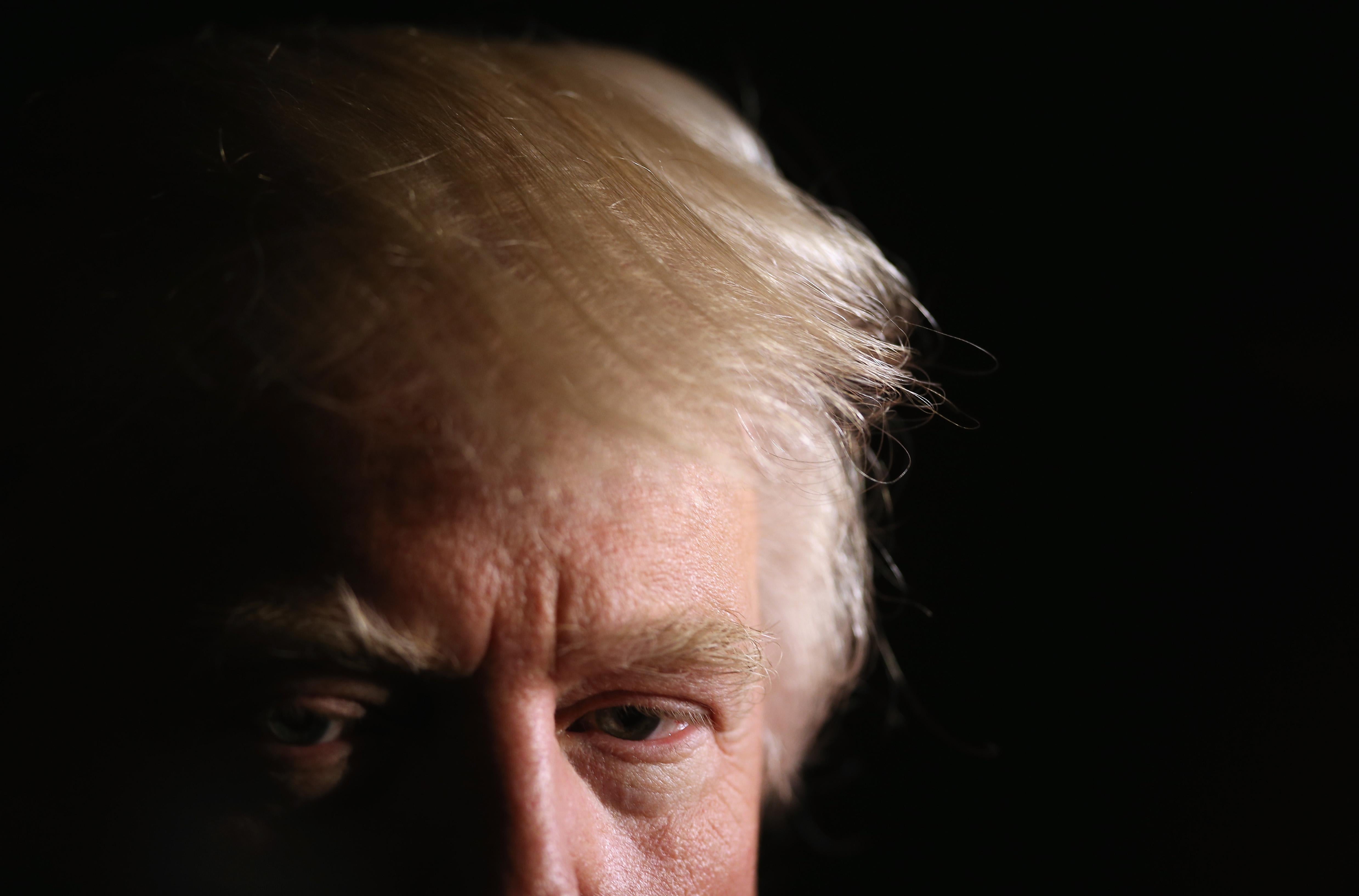The most fun anyone can have reading about politics today will take place here, on the wonderfully illustrated splash page for McKay Coppins’ profile of Donald Trump. Coppins, who’s working on a book about the future of the GOP, solemnly journeyed to a Trump speech in New Hampshire on the promise of an interview during the plane ride back to New York. Weather scrambled those plans, and Coppins stayed overnight at Trump’s estate in Palm Beach. He got his interview, along with paint buckets full of color, and published a profile with asides like “If history is any judge, Trump is about as likely to run for president in his lifetime as he is to accept follicular defeat.” It ends ominously, at a New York GOP dinner.
Trump immediately recognizes me. “Is it gonna be good or bad?”
“The story?” I ask, slightly taken aback.
“Good or bad?”
I hesitate for a moment, unsure of what to say, and then decide to answer honestly. “I think you’ll like it.”
Trump points at me menacingly and mouths a few words I can’t hear before he is swallowed again by the gaggle.
Trump’s operation did not like the piece, and the reaction, given to the Wrap, has all the usual hallmarks of Trump class.
“It is a totally dishonest and unfair article, written by a politically irrelevant website,” Trump’s EVP and Special Counsel Michael Cohen told TheWrap. “From the moment the reporter entered the vehicle to the time he left Mar-a-Lago, his only goal was to write a negative piece.”
“Mr. Trump is totally unfazed by this article,” Cohen added. ”Most people in his situation would have just said thank you to Mr. Trump for his graciousness and hospitality.”
Two funny things here. One: This is always, always how Trump refers to media that cover him negatively. They are irrelevent. Their reporters are losers. Two: The piece includes this scene.
He introduces me to an older, German-accented gentleman who appears to be in charge of the event.
“He’s the biggest blogger in the world,” Trump tells the man. “You look at him, and he’s sort of handsome, but his power is immense.” He turns to me. “Isn’t that right?”
Before I can answer, he is facing the German gentleman again. “Have you heard of BuzzFeed?”
The man doesn’t want to say no, but it’s clear he’s unfamiliar.
“It used to be the New York Times, now it’s BuzzFeed,” Trump explains. He pauses a beat, and then adds, almost wistfully, “The world has changed.”
So is BuzzFeed “politically irrelevant” or is usurping the role of the Grey Lady, in a changed world? Can it be both? The answer is also embedded in the piece, in the part where Trump lists the journalists he respects and the qualities he wants: “I go by how well they treat me, and I go by if they are fair and if they are right.” Not just accurate—they have to treat him well. They have to indulge his sixth fake campaign for office. One of the most positive post-2012 developments in the national politics press is how few Trump-approved journalists are left out there.
